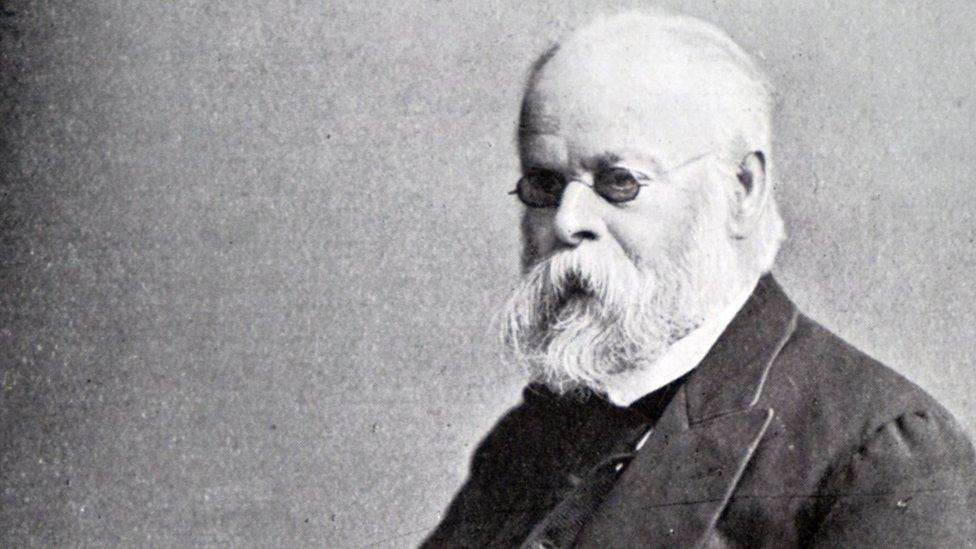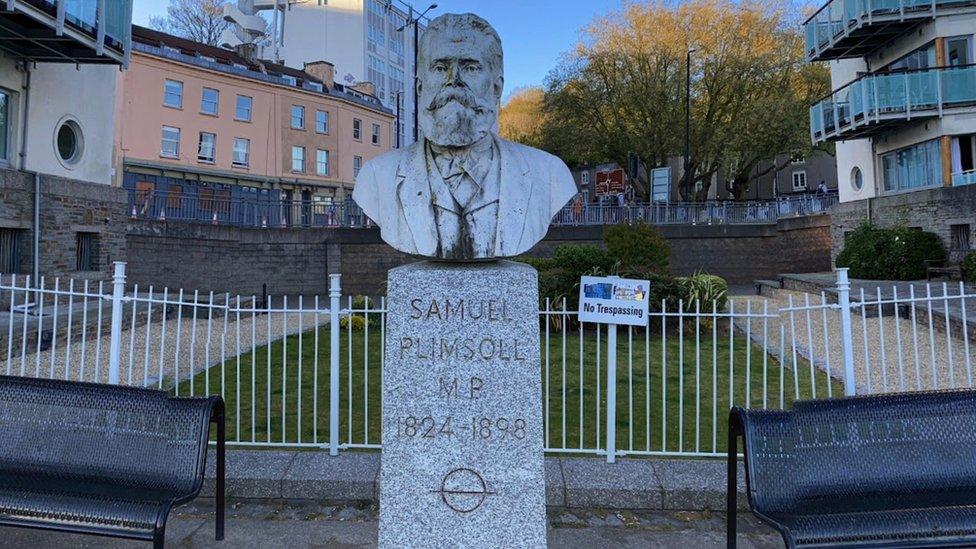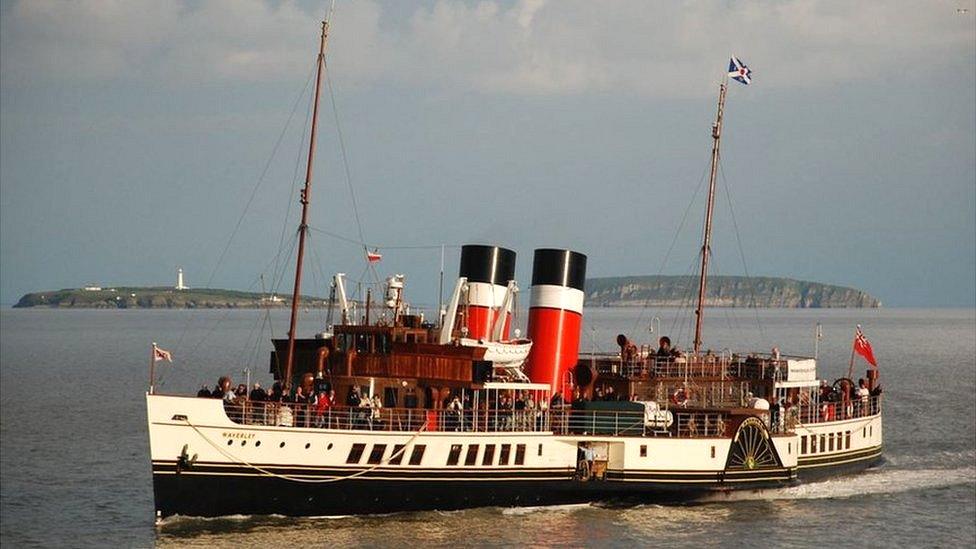Samuel Plimsoll's legacy marked for his 200th birthday
- Published

The book about campaigning MP Samuel Plimsoll was first published in 2006
A book about Victorian campaigner Samuel Plimsoll has been updated with a new introduction to mark 200 years since his birth.
Mr Plimsoll was born in Redcliffe, Bristol, in 1824, and saved the lives of many seafarers by legislating for better safety measures on ships.
Nicolette Jones, a London-based author, has reflected on his legacy in The Plimsoll Sensation's new introduction.
"He was a man for the people then and a man for our times now," she said.
Ms Jones' book, originally published in 2006, recounts the story of Mr Plimsoll and his wife, Eliza.
Whilst working as the MP for Derby, Mr Plimsoll lobbied for a change in labour laws.

A bust commemorating Samuel Plimsoll can be found on Bristol's Harbourside
In the 1800s, many sailors were working in poor, sometimes life-threatening, conditions on ships not safe for sailing due to the poor condition they were in.
It was also common for ships to be overloaded with cargo making them vulnerable to sinking. As a result, thousands of sailors lost their lives every year.
Mr Plimsoll presented the idea of marking a line on the hull to indicate how deep in the water the vessel should sit. At the time, many MPs owned ships.
"People didn't want red tape, they didn't want the interference," Ms Jones said.
"They wanted to decide themselves how much cargo they transported because more cargo meant more profit - even though the risk to sailors was greater."
Revolutionary law change
During the final Parliament session before the Summer recess of 1875, Mr Plimsoll caused uproar among MPs.
The Merchant Shipping Act, intended to improve working conditions onboard ships, was still outstanding and at risk of being abandoned.
Mr Plimsoll implored the Prime Minister, Benjamin Disraeli, to act and incite change - something which much of the press and general public backed.
Mr Disraeli was concerned that the public would turn against him, and by 28 July the government had prepared a stop gap bill which authorised surveyors to stop ships if they had reason to believe that they were not fit to sail.
The law was passed on 10 August, before being replaced a year later by a new act which included adding load lines to ships.
These safety measures, known as, known as Plimsoll Lines, are still used today.

Nicolette Jones has described Samuel Plimsoll as her "hero"
Speaking about Mr Plimsoll's impact, Ms Jones said: "The reason why we have health and safety regulations now is because of the likes of him.
"He was a pioneer of what you might call the Industrial Revolution finding its conscience."
"You try and be objective when you're a historian writing a book, but the truth is he did become my hero," she added.

Follow BBC West on Facebook, external, X, external and Instagram, external. Send your story ideas to: bristol@bbc.co.uk , external
- Published2 February 2024

- Published21 September 2023

- Published9 February 2013
